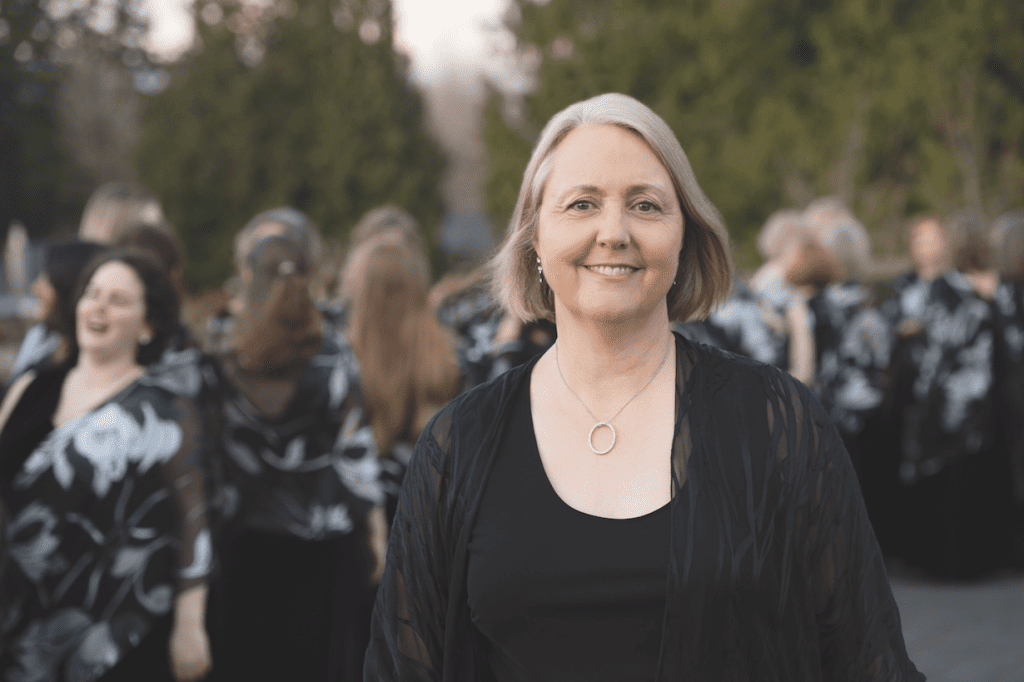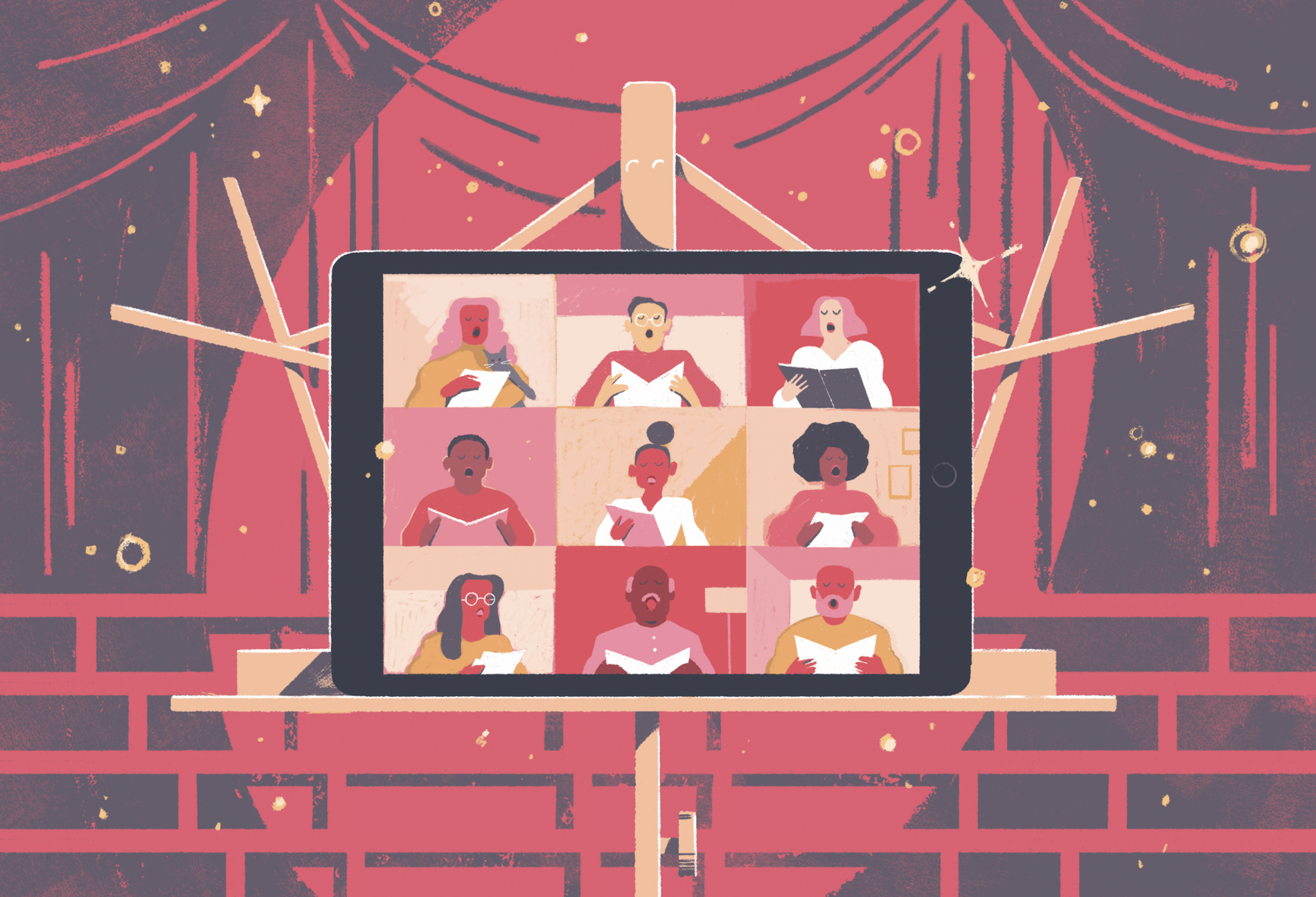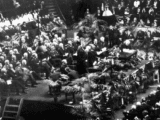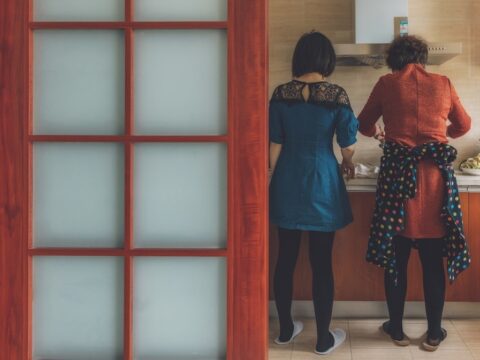Every year on Dec. 1, I wake up, go downstairs to the kitchen, make my coffee and do something slightly ridiculous and self-indulgent: I play Mariah Carey’s All I Want for Christmas Is You at full volume. When the drums kick in, I dance around the house, singing at the top of my lungs and grinning the whole time. My kids stare at me in confusion but then quickly join in, laughing, and we have a silly, happy time together.
You see, I love Christmas music. I’m not Christian, but for many people, Christian or not, Christmas carols and festive music are part of the cultural fabric of the season. For some, it’s the only time of year they’ll sing at all.
You may unsubscribe from any of our newsletters at any time.
Choral Christmas concerts often have a singalong component, and many churches hold a special carols service. The familiarity of the music can be a touchstone for people. Joining in a rollicking chorus of The Twelve Days of Christmas, for example, creates a feeling of community unlike any other.
This year, however, singing together is one of those traditions we can’t enjoy safely, thanks to the COVID-19 pandemic. Christmas is always a time of nostalgia, but it feels especially acute right now: we long for the rituals of Christmas past, a time before social distancing, masks and lockdowns. Our traditions are, in some cases, impossible to recreate.
Morna Edmundson, conductor of the Elektra Women’s Choir and EnChor in Vancouver, sees singing Christmas music as part of a larger social phenomenon that we don’t fully grasp. “I think Christmas carols in our culture are particularly significant because they’re almost the only songs that we all know,” she says. “People don’t necessarily even know all the words, but they will be able to name tunes and sing melodies. That’s something that many other cultures in the world have that we don’t, so that makes touching those melodies at Christmastime super important.”

Sitting at home singing along to a time-lagged video performance on your computer doesn’t have quite the same appeal as a live concert, whether you happen to be the performer or the audience. And we can and should grieve that.
Sara Brooks, a conductor, singer and psychologist in Edmonton, describes Christmas music as comfort food. Without the consoling effects of participatory music this season, “it’s going to be extremely hard,” she says. Brooks has created a Facebook support community for professional musicians, many of whom have watched their income completely dry up as performance after performance is cancelled.
“I think the big thing that people aren’t necessarily recognizing is that what we’re experiencing is grief,” she says. As a society, we’re very good at saying, “Let’s be positive and move on,” but we also need to pause and acknowledge our sadness.
As I write this article in the first week of September, I’m thinking of all the Christmas music I would already be learning in my choir in a normal year. I’m thinking of the groan I would let out to my soprano neighbour as we rehearse a piece celebrating newly fallen snow while still wearing our sandals and T-shirts. I miss that shared experience of laughing and singing together.
“Who would have thought the thing that is so healthy would be something we’re not allowed to do?” Edmundson asks. She adds that singing in a choir is a “crazy, beautiful coming together” of physical, emotional and social benefits, and of community, language and history. “And suddenly we can’t do it the way we did it before.”
More on Broadview:
- I boycotted the Sally Ann bell-ringers. Now I’m having second thoughts.
- This Christmas, consider looking beyond classic children’s books
- Poem by Afua Cooper: Things I Like Doing
Ray Oldenburg, an American urban sociologist, came up with the idea of the third place, a setting beyond home and work where people find community, validation and connection. Robert Cooper, conductor of the Orpheus Choir in Toronto and Chorus Niagara, says that while church is that third place for some people, for others, it’s choir. “Rehearsal is a very important part of their week,” he says. They might be going through something difficult, but at choir practice, “they can for- get about their worries and be connected for three hours, and that third place is terribly important.”
Right now, conductors like Cooper, Edmundson and others are trying to find a way to keep that third place alive for those who need it. Edmundson’s Elektra Women’s Choir is preparing a holiday livestream concert that will combine past recordings with several new performances featuring individual voices recorded, edited and mixed together to form a virtual choral ensemble. In contrast, Cooper plans to hold live physically distanced rehearsals in a large space this fall, to minimize airborne transmission of the virus.
The hardest and most important thing we need to hang on to right now is that glimmer of hope that we can get through this challenging time. Brooks provides that for me as we talk, suggesting a resurgence of door-to-door carolling and small distanced ensembles on street corners to preserve the connection that comes from singing together at Christmas.
“It’s not the same and it’s going to be tricky, but I think if we can even just once in the season bring people together somehow, that has to be given priority,” she says. Congregations, audiences, musicians — all “are going to need some kind of feeling of community. Whatever that looks like.”
***
This story originally appeared in the December 2020 issue of Broadview with the title “Silent season”.
Glynis Ratcliffe is Broadview’s senior writer.
We hope you found this Broadview article engaging.
Our team is working hard to bring you more independent, award-winning journalism. But Broadview is a nonprofit and these are tough times for magazines. Please consider supporting our work. There are a number of ways to do so:
- Subscribe to our magazine and you’ll receive intelligent, timely stories and perspectives delivered to your home 10 times a year.
- Donate to our Friends Fund.
- Give the gift of Broadview to someone special in your life and make a difference!
Thank you for being such wonderful readers.
Jocelyn Bell
Editor/Publisher














